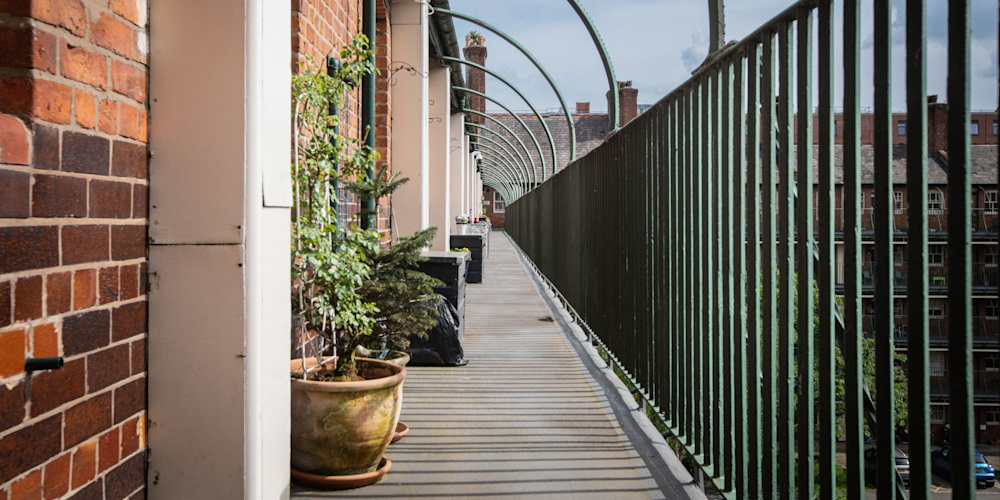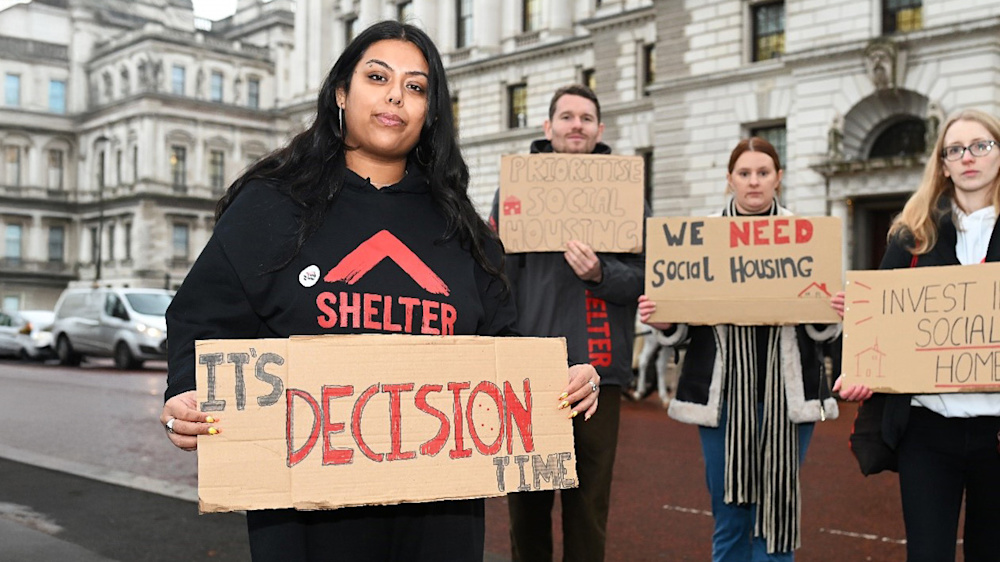Changing the housing system
Housing now has a prominent place in the national conversation, due to record levels of homelessness and thousands of people across the country struggling with soaring rents and unsuitable conditions.
To change this, Shelter's priorities this year have been influencing the Renters' Rights Bill and continuing to fight for the building of new social homes.
Renters' Rights Bill
The introduction of the Renters Reform Bill, as it was initially known, to Parliament in May 2023 was a major milestone in our campaign to secure lasting change for England's 11 million renters.
However, turning that milestone into real and lasting change for renters has been a long, uphill battle.

Pushing for a strong bill
Over the past year, we have worked with MPs, campaigners and more than 100,000 supporters to maintain pressure on the government to deliver meaningful change.
By providing feedback and evidence directly to politicians, we challenged proposed amendments to the bill that would have weakened its impact.
The stakes could not be higher, with:
an average of 500 renters being served section 21 'no fault' eviction notices every day
rent hikes far exceeding inflation
people forced to live in dangerous conditions for fear of retaliatory evictions
Throughout our fight for a fair, just bill, our asks to the government have been attainable, realistic and evidence-based. And now, the Renters' Rights Bill is about to be turned into law.
What the future holds
With the new bill, we hope that unfair evictions, excessive advance rents and unjustified rent increases will soon be a thing of the past. The government must improve security for private renters, meaningfully tackle discrimination within the housing system, and hold law-breaking landlords to account.
Investment in social housing

Despite the UK being one of the richest countries in the world, the housing emergency continues to drive record levels of homelessness.
The number of households in England living in temporary accommodation has more than doubled since 2010, from 48,000 to 120,000. This is the highest figure since records began.
At the same time, the wait for family-sized social housing has risen to more than 100 years in parts of England.
Over 160,000 children are homeless, living in temporary accommodation.
People living in temporary accommodation often live with rampant issues of disrepair, damp and mould, and no cooking or laundry facilities.
Residents are frequently moved at short notice, often away from their home area, schools, workplaces and support networks.
Without enough safe and secure social homes, local authorities are unable to provide people with what they are entitled to.
Our Invest in Social Housing campaign had a clear, attainable and urgent message to the government to fix this: commit to delivering 90,000 social rent homes a year until 2029.
The economic case
The argument that the country cannot afford to build social homes no longer stands. Ahead of the government's Spending Review, Shelter brought together top economists, industry leaders, and policy experts to make the fiscal and economic case for investing in
social homes.
Their report on the economic impact of building social housing includes rigorous analyses of how the economy is damaged by the housing emergency and strengthened by building social housing.

Centring lived experience
We also amplified the voices of people with lived experience.
To call for more social housing and highlight the value and benefits of social homes for people, musician Craig David contributed his powerful story, revisiting the social home he grew up in. His message was shared widely on social media, reaching millions of people.
We sent an open letter to the Chancellor of the Exchequer Rachel Reeves, signed by more than 20,000 supporters, urging her to commit to social housing investment.
Momentum for change
Through continued campaigning, collaboration with experts and the wider sector, we equipped people with the knowledge and resources needed to make their voices heard, which the government could no longer ignore.
This year, we welcomed commitments from the government to finally address the housing emergency and improve the situation for those most affected:
in June, Rachel Reeves announced a £39 billion investment over 10 years for social and affordable housing
in July, we heard that at least 60% of the homes being built using this investment will be social rent homes
Social rent homes are the only homes with rents linked to local incomes, and are the only homes affordable for many people. These are both hugely significant and positive steps for people who are struggling with their housing.
But the fight isn’t over. To truly tackle the root causes of the housing emergency, the government must build 90,000 social rent homes each year for the next 10 years.
We will continue to push the government to set this target and ensure that developers build their fair share of truly affordable homes. Together we can build a future where everyone has access to a safe, secure and decent home.

This content is from our 2024/25 impact report. It covers our work between April 2024 and March 2025, and all information is accurate as of this period.
